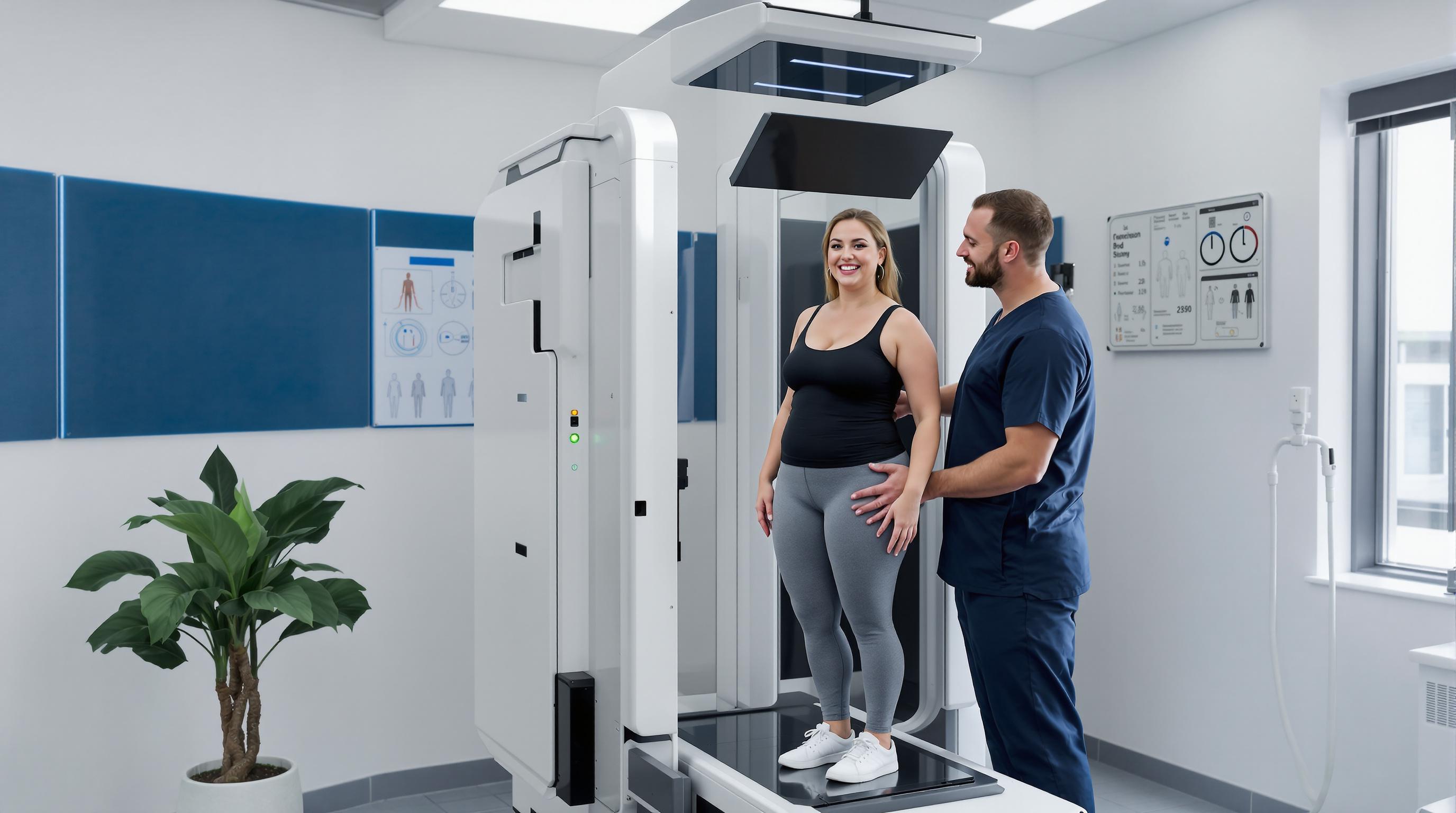Understanding the longevity medicine paradigm
Longevity medicine represents a fundamental shift from traditional reactive healthcare towards a proactive, preventive approach. As exemplified by Princeton Longevity Center's 20-year expertise, this paradigm focuses on detecting and preventing diseases before they manifest, rather than simply treating symptoms.
Unlike conventional medical practices, longevity centers implement evidence-based testing and personalized protocols designed to optimize healthspan. This approach combines advanced diagnostics with individualized wellness strategies, creating comprehensive programs that address physical, mental, and social wellbeing.
The core principles include:
- Early disease detection through comprehensive screening
- Personalized action plans based on individual health markers
- Integration of multiple therapeutic approaches
- Ongoing monitoring and adjustment of interventions
This model emphasizes unrushed physician consultations and detailed health assessments that provide deeper insights than traditional annual examinations. The goal is to add active, healthy years to life through systematic prevention and optimization of bodily functions.

Advanced diagnostic technologies and assessments
Modern longevity centers leverage sophisticated diagnostic tools to create comprehensive health profiles. Bio-energetic testing provides non-invasive assessment of bodily stressors, while advanced thermography offers radiation-free imaging to detect inflammation patterns.
Centers utilize cutting-edge evaluation methods including:
- Functional lab testing to identify nutritional deficiencies and metabolic imbalances
- Body composition analysis and VO2 max measurements
- Gut health assessments for optimized wellness
- Brain mapping and neurofeedback technology
These advanced diagnostics enable practitioners to detect potential health issues early and develop targeted intervention strategies. Personalized biomarker analysis helps track improvements over time, while comprehensive genetic and epigenetic screening provides insights into individualized risk factors and treatment responses.
The integration of these technologies allows for precise monitoring of eight key health markers, from biological age assessment to circadian rhythm optimization, creating a truly holistic picture of patient wellbeing.

Integrative therapeutic approaches
Modern longevity centers embrace a comprehensive spectrum of integrative therapeutic modalities that work synergistically to optimize health and extend vitality. At the core of this approach is bioidentical hormone replacement therapy (BHRT), which helps restore optimal hormone levels to enhance energy, cognitive function, and overall wellbeing.
Traditional Eastern practices like acupuncture play a vital role in these integrative protocols. By stimulating specific points along the body's meridians, acupuncture helps balance energy flow, reduce pain, improve circulation, and support emotional wellbeing. This ancient practice is often combined with modern therapies like Theralase cold laser treatments to amplify healing effects.
The therapeutic arsenal includes specialized treatments such as:
- Assisted Lymphatic Therapy for enhanced detoxification
- Far-infrared sauna sessions for cellular regeneration
- HOCATT ozone therapy to boost immunity
- Frequency-Specific Microcurrent for tissue repair
- Integrative Energetic Therapy for emotional balance
Nutritional counseling forms another cornerstone of the integrative approach. Expert practitioners develop personalized dietary protocols, often supplemented with targeted nutraceuticals and peptide therapies. These nutrition plans work in concert with other treatments to support healing, detoxification, and long-term health optimization.
Bio-energetic testing allows practitioners to identify bodily stressors and fine-tune treatment protocols. This diagnostic tool helps create individualized therapeutic combinations that address each patient's unique needs. The coordinated implementation of these various modalities, overseen by experienced healthcare professionals, ensures that treatments complement and enhance each other for optimal outcomes.
Advanced therapies like PRF (Platelet-Rich Fibrin) treatments exemplify the integration of cutting-edge regenerative medicine with natural healing processes. These innovative approaches are carefully coordinated with other therapeutic modalities to create comprehensive healing protocols that address both immediate concerns and long-term wellness goals.
Personalized wellness programs and protocols
At the heart of longevity medicine lies the development of highly individualized treatment protocols that address each patient's unique health profile. Centers begin by conducting comprehensive assessments that examine multiple health markers, from genetics and epigenetics to biological age markers and circadian rhythms.
These advanced centers utilize bio-energetic testing and functional lab work to uncover hidden imbalances and nutritional deficiencies. The diagnostic process often includes body composition analysis, metabolic rate testing, and detailed hormonal panels to create a complete picture of the patient's current health status.
Based on these thorough evaluations, practitioners develop customized wellness plans that typically include:
- Personalized nutrition protocols based on individual metabolic profiles and food sensitivities
- Tailored exercise programs accounting for fitness levels and specific health goals
- Customized supplement and peptide therapy regimens
- Targeted lifestyle modifications addressing sleep, stress, and environmental factors
The implementation of these programs involves ongoing monitoring and adjustment. Wellness specialists work closely with patients to track progress and modify protocols as needed. This might include regular body composition assessments, metabolic testing, and adjustment of nutritional plans to optimize results.
Many centers incorporate advanced technological solutions to support personalized care. From specialized diagnostic equipment to digital health tracking platforms, these tools enable practitioners to fine-tune treatment protocols and provide data-driven recommendations for lifestyle modifications.
The personalization extends to scheduling and care delivery, with centers offering flexible appointment times and dedicated clinical points of contact. This ensures that patients receive consistent support and guidance throughout their wellness journey. Regular check-ins and progress evaluations help maintain accountability and allow for timely adjustments to treatment protocols.
Centers emphasize the importance of patient education and empowerment, providing detailed resources and guidance on implementing lifestyle changes. This might include cooking demonstrations, stress management techniques, and practical strategies for incorporating healthy habits into daily routines. The goal is to equip patients with the knowledge and tools needed to maintain their personalized wellness protocols long-term.
The role of preventive care in longevity optimization
Unlike traditional reactive healthcare approaches, preventive medicine at longevity centers focuses on early disease detection and proactive health management. The Princeton Longevity Center exemplifies this through comprehensive diagnostic testing and evidence-based screenings that provide deeper insights than conventional annual exams.
Key preventive strategies include:
- Advanced medical assessments to detect potential health issues before they manifest
- Regular monitoring of biomarkers and vital health indicators
- Implementation of early intervention protocols when warning signs appear
- Comprehensive diagnostic testing with state-of-the-art technology
This preventive approach enables physicians to identify and address health concerns at their earliest stages, significantly improving treatment outcomes. By combining advanced testing with personalized preventive protocols, longevity centers help patients take control of their future health and add active, healthy years to their lives.
Measuring success and outcomes in longevity medicine
Longevity medicine centers employ sophisticated methods to track and evaluate treatment effectiveness through multiple data points and measurements. At the core of their assessment approach is a comprehensive analysis of biomarkers and health metrics that provide objective evidence of improvements in patients' health status.
The Princeton Longevity Center exemplifies this evidence-based approach by combining advanced diagnostic testing with personalized assessments. Their evaluations provide more insight into current and future health than traditional annual exams, allowing for precise tracking of progress over time. Through bio-energetic testing and functional lab work, centers can measure improvements in cellular function, hormonal balance, and metabolic health.
Key metrics tracked by longevity centers include:
- Body composition analysis and metabolic rate measurements
- Comprehensive hormone level monitoring
- Inflammatory markers and immune system function
- Cardiovascular health indicators
- Biological age assessments
- Cognitive function measurements
Patient outcomes are particularly evident in specific treatment areas. For instance, at Longevity Health Clinic in Charlottesville, patients report significant improvements in weight management through semaglutide and tirzepatide treatments, with documented benefits including enhanced blood sugar control and reduced cardiovascular risk factors. Success stories highlight substantial quality of life improvements, from increased energy levels to better sleep patterns and enhanced physical performance.
The effectiveness of holistic approaches is demonstrated through patient testimonials, such as those from Longevity Health Center in Roswell, where individuals report resolution of chronic conditions through integrated treatment plans. One patient noted complete elimination of sinus issues and successful body detoxification, while another experienced significant joint pain reduction without reliance on conventional medications.
These centers also measure success through preventive outcomes, tracking the reduction in disease risk factors and emergency medical interventions. The comprehensive approach has shown particular effectiveness in hormone optimization, with patients reporting improved energy, enhanced cognitive function, and better muscle mass maintenance - all quantifiable measures of successful age management.
Modern longevity centers utilize advanced technology for ongoing monitoring and assessment, including regular body composition scanning, cardiovascular screenings, and cognitive performance testing. This continuous evaluation allows for real-time adjustments to treatment protocols, ensuring optimal outcomes and sustained health improvements for patients engaged in long-term wellness programs.
